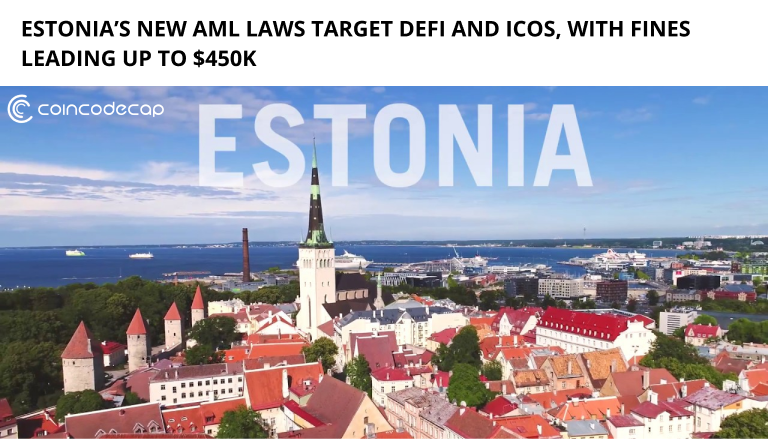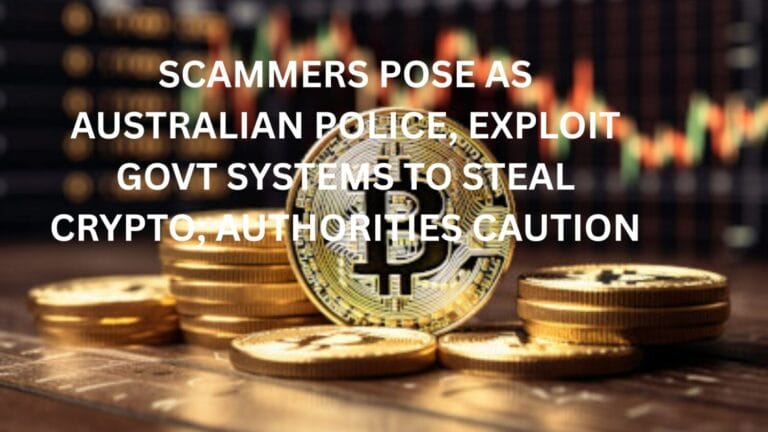Key Takeaways:
- Estonia’s new AML laws target DeFi and ICOs with fines leading up to $450K.
- According to the draught law, Virtual asset service providers (VASPs) have until March 18, 2022, to comply with the new requirements.
- The law now covers ICO issuers, brokerage services, decentralised platforms, and dApps, and third-party platforms that are involved in the sale, purchase, or storage of digital assets.

Estonia is set to become the latest country to change its financial regulations to make it more difficult for the digital currency industry to operate. The European country has amended its anti-money laundering laws to increase oversight of the sector, including a focus on decentralised finance (DeFi) platforms and a threefold increase in license fees to more than $11,000.
In September 2021, the Estonian Ministry of Finance published a draft bill intended to amend the country’s Money Laundering and Terrorist Financing Prevention Act (the AML Act). On December 23, the government approved this draft legislation, and this year, it will undergo three readings before it finally becomes law.
According to the draught law, Virtual asset service providers (VASPs) have until March 18, 2022, to comply with the new requirements. The law begins by broadening the definition of VASPs to include previously unregulated sectors of the digital currency industry. The AML Act previously only applied to exchanges and wallets.
The law now covers ICO issuers, brokerage services, decentralised platforms, and dApps, and third-party platforms that are involved in the sale, purchase, or storage of digital assets, according to Sumsub, a London-based KYC and AML firm. As a result, individuals who created the networks will be held accountable without legal entities.
The licensing and operational fees for VASPs in Estonia have also increased due to the new law. They had to pay €3,300 ($3,700) for an operational license previously. The fee will be tripled to €10,000 ($11,300) once the draught law takes effect.
Despite this, the minimum share capital requirement for wallets, exchanges, and ICOs has been increased tenfold, from $13,500 to $141,000. As a result, the fee for companies that provide digital currency transfer services has risen to a whopping $395,000. In addition, beginning April 1, 2022, a Financial Intelligence Unit supervision fee of 1% of share capital will be charged.
VASPs applying for a license must submit a slew of documents to the watchdog in addition to the exorbitant licensing fees. A business plan, financial information such as assets and share capital size, risk appetite documentation, information on their financial audit firm, and data on the number of shares and votes are all examples.
The watchdog will not grant a license to any VASP whose share capital is of dubious legal origin, which operates solely from Estonia but does not serve Estonians, or whose IT systems do not meet the required standards.
Those who successfully obtain the difficult license must remain vigilant or risk losing it. License revocation can occur for various reasons, including being inactive for more than six months, choosing Estonia solely to avoid stricter AML regulations in other jurisdictions, and publishing false information. In addition, if you are found guilty of anti-money laundering or terrorist financing, your license will be automatically revoked.
Any VASP that has broken the rules will be punished severely by the Estonian watchdog. In addition, the new draught rule will add three new offences to the existing ones, resulting in fines and license revocation. Examples are opening an anonymous account, failing to establish or control information related to the originator of a transaction, and violating obligations such as failure to establish or control information related to the originator of a transaction.
“These violations can lead to a fine of up to 300 fine units (one fine unit equals €4 [$4.52]) for a natural person and a fine of up to €400,000 [$452,004] for a legal person,” Sumsub warns.









